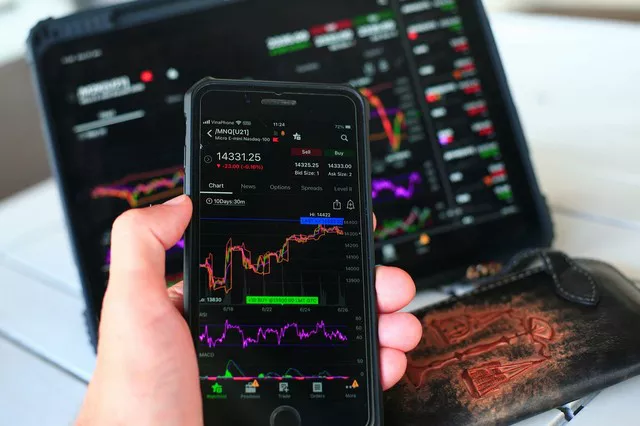Indices and futures are fundamental components of the financial markets, each serving distinct purposes and attracting a diverse range of investors and traders. While they are interconnected, it’s essential to grasp the key differences between indices and futures to make informed investment decisions.
1. Defining Indices
An index, in the context of financial markets, is a statistical measure that represents the performance of a group of assets, such as stocks or bonds. These assets are typically chosen based on specific criteria, such as market capitalization, sector, or geographic location. Indices serve several purposes:
Benchmarking: Indices provide a reference point for measuring the performance of an investment portfolio or a specific asset class. Investors use indices as benchmarks to assess how their investments are performing relative to the broader market.
Investment Products: Many investment products, such as index funds and exchange-traded funds (ETFs), are designed to replicate the performance of a particular index. Investors can gain exposure to a diversified portfolio of assets by investing in these products.
Market Analysis: Indices are critical tools for market analysis. Analysts use them to gauge the overall health and direction of the market, identify trends, and make predictions about future market movements.
2. Understanding Futures Contracts
Futures contracts are standardized financial agreements that obligate the buyer to purchase and the seller to sell a specific quantity of an underlying asset at a predetermined price and date in the future. These contracts are tradable on futures exchanges and serve several primary functions:
Hedging: Futures contracts allow businesses and investors to hedge against adverse price movements in the underlying asset. For example, a farmer can use futures contracts to lock in a price for their crops, mitigating the risk of price declines.
Speculation: Traders can use futures contracts to speculate on the future price movements of various assets, including commodities, currencies, stock indices, and interest rates. Futures offer leverage, allowing traders to control larger positions with a smaller amount of capital.
Price Discovery: Futures markets play a crucial role in price discovery. The prices established in futures markets often reflect market sentiment and expectations about the future supply and demand for the underlying assets.
3. Differences in Nature
Indices and futures differ fundamentally in their nature:
Composition: Indices represent a basket of assets, and their value is determined by the performance of those assets. Futures contracts, on the other hand, are financial instruments that derive their value from an underlying asset but do not represent ownership of that asset.
Trading and Settlement: Indices are not traded or settled directly. Instead, they serve as reference points for measuring performance. Futures contracts, in contrast, are actively traded financial instruments with specific contract terms, trading hours, and settlement procedures.
Diversification: Indices inherently offer diversification because they represent a group of assets. Futures contracts, in contrast, can provide exposure to individual assets or commodities.
4. Trading and Liquidity
Trading dynamics and liquidity differ significantly between indices and futures:
Trading Hours: Indices do not have trading hours of their own, as they are reference points. Their values are calculated based on the prices of the underlying assets during regular market hours. Futures contracts, on the other hand, have specific trading hours, which may include extended trading sessions.
Liquidity: Indices typically have high liquidity, as they encompass a broad range of assets and are not traded directly. Futures contracts may exhibit varying levels of liquidity, depending on the specific contract and market conditions.
5. Risk Profile
The risk profile of indices and futures also varies:
Market Risk: Indices are subject to market risk, representing the collective performance of their constituent assets. Futures contracts are influenced by market risk as well but are more directly exposed to fluctuations in the prices of the underlying assets.
Counterparty Risk: Futures contracts carry counterparty risk, as traders must fulfill their contractual obligations. If one party defaults on its obligations, it can lead to financial losses for the other party. Indices do not involve direct counterparty risk, as they are reference points rather than contracts.
6. Diversification and Exposure
Indices inherently offer diversification, as they represent a basket of assets, enabling investors to gain
exposure to a broad market or specific sector. Futures contracts provide more targeted exposure to individual assets or commodities.
Indices: Investors can use index-based products like ETFs or mutual funds to achieve diversified exposure to various asset classes or market segments.
Futures: Futures contracts allow traders to gain leveraged exposure to specific assets or commodities, making them suitable for both hedging and speculative purposes.
Conclusion
Indices and futures are essential components of the financial markets, serving different purposes and attracting distinct categories of investors and traders. Indices provide a broad measure of market performance and serve as benchmarks for investment portfolios, while futures contracts offer a versatile tool for hedging, speculation, and price discovery.
Understanding the differences between indices and futures is crucial for making informed investment decisions and crafting effective trading and investment strategies. Whether you seek diversified exposure through indices or the flexibility of futures contracts, these financial instruments contribute to the dynamic and multifaceted world of financial markets.

